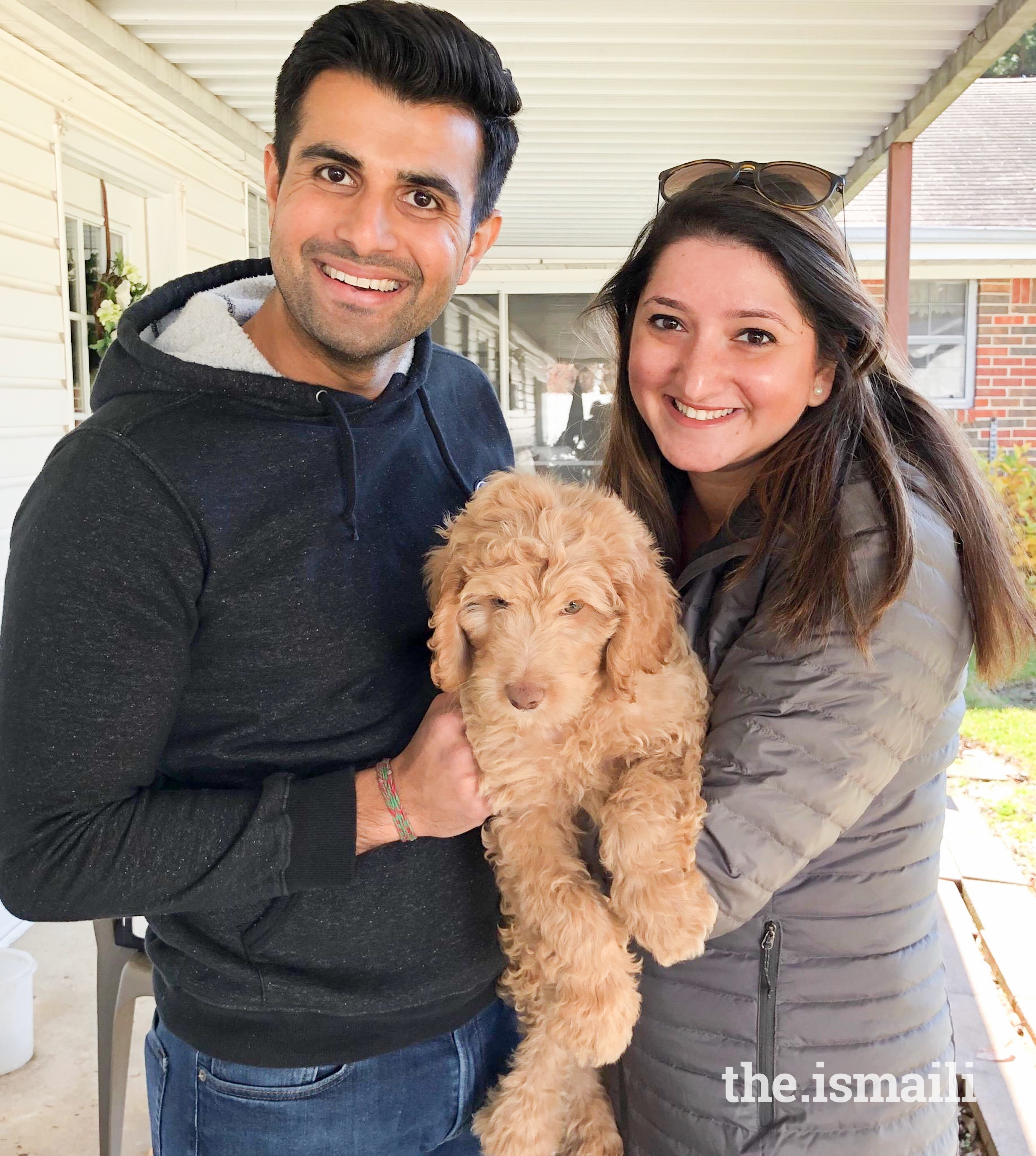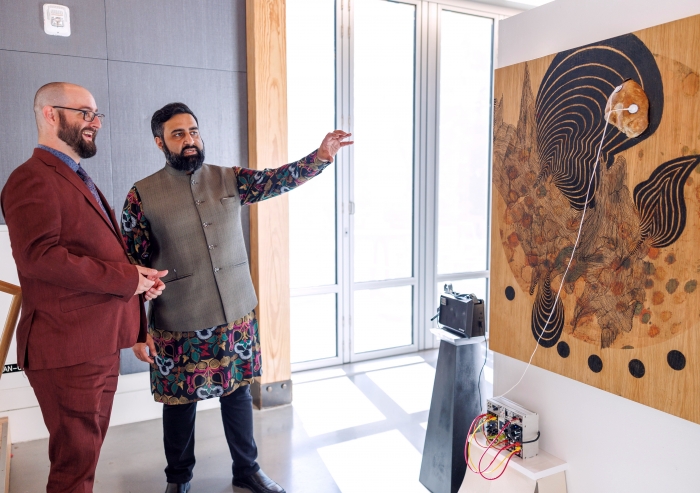img_3557amend.jpg

“Difficult, stressful, and frightening,” are how Dr. Nazia Kabani describes the emotions she shares with her fellow physicians. What they are witnessing may be a once in a lifetime event, given the explosive rate of infection and the inability of most hospitals to care for the surge of patients with symptoms of COVID-19.
Nazia’s own hospital has seen a reduction in parents bringing children to the Emergency Room for minor health issues, in an attempt to avoid unnecessary exposure, and with consultations being done over the telephone. Still, there is no respite for Nazia, as she and her colleagues have to pay particular attention to children being admitted for infections and for COVID-19 symptoms. Fortunately, children are less susceptible to contracting the virus but the concern and care required to treat them are no different from treating the elderly.
Safety is definitely a concern for Nazia, as supplies are limited. “I have always been given proper gear,” she says, “but it is not as freely and openly accessible as before.” She writes her name on her N-95 mask and face shield, adding, “[...]they are placed in a brown bag after use and after cleaning. Then, the N-95 is sent to be sterilized. We get it back the next day. Currently, personal protective equipment (PPE) consists of a gown, gloves, surgery bouffant hat, N-95 mask, general surgical mask on top, and a face shield on top of that.” At any other time, these could have served as a Halloween costume, but this is the required dress code today in hospitals around the world.
Protective gear is limited, and greater care is taken in how it is used. “The N-95 and face shield are ours, and we use them for multiple patients, for multiple days,” says Nazia. She uses one N-95 per one COVID patient, but saves the mask and uses it over and over again for that particular patient. She explains, “When I have a separate patient who is under investigation but is not positive yet, another N-95 is used and saved in a separate bag. This is done so that I don’t accidentally infect a patient who is negative by bringing in the other N-95, even after I’ve cleaned it.”
Nazia is frustrated that people are not taking social distancing seriously. “The hospital is not a safe place for people,” she says, surprisingly for a physician, adding, “Nurses will congregate together and have conversations, not realizing how close they are to each other and patient rooms. Doctors, likewise, in resident lounges and offices do the same at times, though we try our best to stay separated and distanced from others.”
The most difficult situation in the Neonatology Ward for Nazia is for new parents, as mothers cannot have visitors anymore. Fathers are allowed in the delivery room but are no longer allowed to be present for Cesarean sections. Babies, whose mothers are COVID-positive, are separated from them, and the mothers are not allowed to be with the baby until it is time to go home. “It breaks my heart to watch a mom, after giving birth to her baby that she’s kept in her womb for nine months, be taken away from her,” remarks the doctor. Even after delivering, there is a risk, as a non-infected caregiver is supposed to assume care for the child. “However,” asks Nazia, “who is to say that person is not infected?” Non-patients are not tested and that poses a risk.
Nazia feels that this virus will be here through the summer, and all of us need to continue our safety precautions. “I think the world has changed because of it,” she comments. “My life has certainly changed due to it. When I come home from the hospital, I enter through the garage, to the laundry room, strip and put my clothes in the wash, and run straight to the shower. I only greet my family, after my shower is done and I have cleaned every inch of my body thoroughly.”
She washes her hands obsessively throughout the day and sanitizes them constantly. Nazia says she walks around the hospital with one surgical mask, using it for days at a time, until it is too tattered. “Then, I ask a charge nurse, very kindly and humbly, for a new one.” Hardly a reassuring situation for anyone, let alone the medical heroes engaged in this life-saving battle.
Worrying about bringing home the virus to her husband, Sameer, or that he may take it to his older parents, is constantly on Nazia’s mind. She is also not visiting her own parents in Atlanta for fear of spreading it to them. She says she disinfects the house constantly, and Sameer has created a bleach mix which is never too far from him.
“My advice to others is that this is serious,” says Nazia. “We risk our lives and the lives of our loved ones each day. Please stay home and enjoy this time with your families. Physical distancing is important and effective. Finally, if you have access to PPE, please consider donating to health care workers and institutions. We are working hard and furiously. We are human though, and we are scared. “








